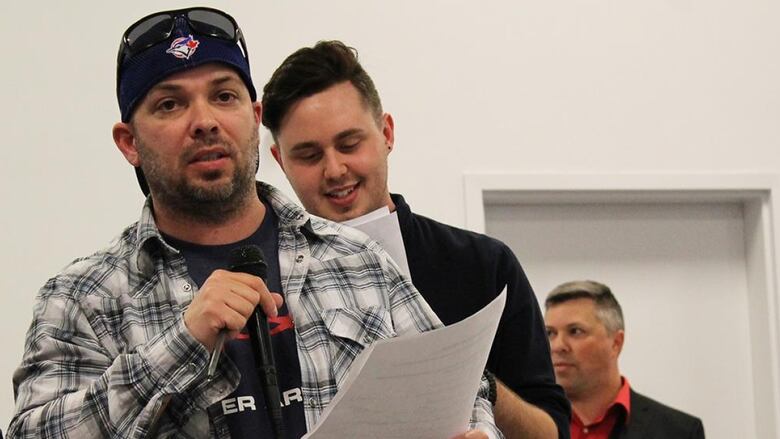How do addictions workers protect themselves? Crisis co-ordinator explains
Red River College student partially blinded after attack at behavioural centre this week

The Red River College student who was attacked and partially blinded during her child and youth care work placement shouldn't have been left alone with the accused at any point, according to a Winnipeg crisis worker.
"Somebody who's brand new, we might not take them into what we consider a super high-risk situation with high-risk people," said Zach Dixon, the crisis stabilization co-ordinator for Turning Leaf, a province-wide organization that helps people with addictions and mental illness. "We slowly integrate them. But there's two-to-one staffing and you're with an experienced manager or crisis worker."
- Student addictions worker recounts beating with bat and pool balls
- Employee 'played dead' to survive attack at behavioural centre, son says
Dixon has worked in crisis intervention for decades and said only people who are highly trained should be working with high-risk people.
"We bring in the Winnipeg Police Service to talk to us. We bring in Manitoba Justice," Dixon said of his crisis team's training. "[We teach] the basics of non-violent crisis intervention. We also hold a host of different training sessions and on-the-job training."
Once that training is complete, Dixon said there's still two-to-one staffing and emergency procedures in place.
Jackie Healey and her supervisor were assaulted at the Selkirk Behavioural Health Foundation on Sunday.
Healey, a Red River College student, was on her last shift of work placement when she was attacked. She and a supervisor were the only two employees at the facility supervising two male youths.
Now, the two teens are facing a total of 17 charges in connection with the attacks that involved a baseball bat and pool balls placed in socks.
The Behavioural Health Foundation centre had planned to close the male youth services portion of the program later this month.
- Assaults on youth workers in Manitoba a 'daily occurrence'
- Provincial funding a factor in student's attack, outreach worker says
Dixon said knowing the history of the individuals workers are supervising is the first thing workers need to know.
"We're looking at the thoughts, emotions and behaviours and social factors of a person," Dixon said. "So are there addictions, history of abuse, major criminal history? Is there anything in the file you can do research on? How does this person think? How do they operate? Did they come out of an institution? Is there a track record of them attacking other staff?"

Dixon said that, as a student, Healey may not have known that's the best thing to do.
"We tell our workers from the get-go, even if there's not a specific threat ... come to management and say, 'I'm uncomfortable,'" Dixon said. "If you think you're in trouble, if there's any kind of threat, get out of there. Call 911. The worst that can happen if you make a mistake is the police show up and say, 'It's not a threat,' but get out of there."
Ultimately, people who do social work should not be given the same responsibilities as police, Dixon said.
It's not a worker's job to take weapons away and dissolve dangerous situations.
Given the training his team goes through, Dixon said crisis workers often don't have to rely on physical intervention.
"What happened to [Jackie Healey] is a more isolated incident," he said. "This young lady got hurt while she was trying to make a difference. She should be commended."